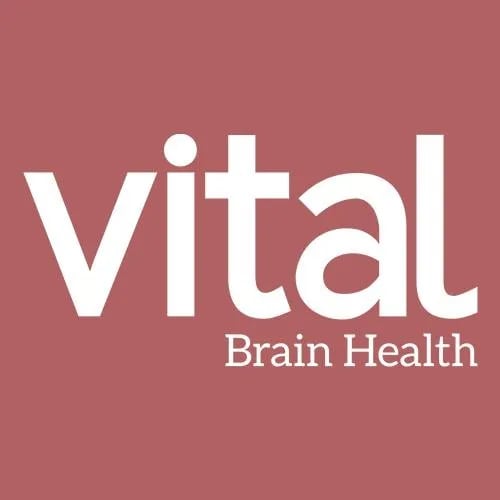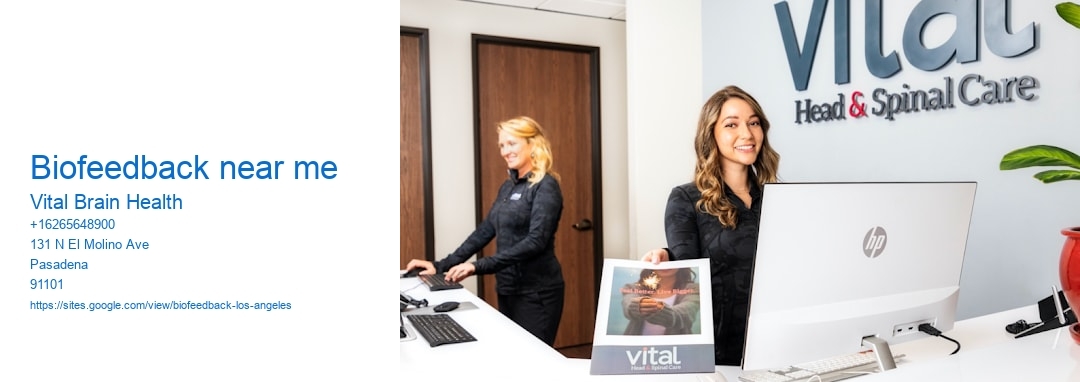How Biofeedback Works
Biofeedback is a fascinating approach that allows individuals to gain greater awareness and control over various physiological functions, using the power of their own mind. Best Biofeedback Los Angeles CA . This method involves using electronic monitoring devices to provide real-time data on bodily processes such as heart rate, muscle tension, and skin temperature. By observing these metrics, individuals can learn how to modulate these functions to improve their health and well-being.
The concept of biofeedback is rooted in the idea that the mind and body are interconnected, and with the right guidance, people can harness this connection to influence involuntary bodily processes. For instance, someone suffering from anxiety might use biofeedback to recognize the physical manifestations of their stress, such as increased heart rate or muscle tension. By becoming aware of these signals, they can practice relaxation techniques to bring their body back to a state of calm, thereby alleviating symptoms of anxiety.
Biofeedback works by creating a feedback loop.
At Vital Brain Health we help with pasadena child anxiety treatment so you can smile a little more while finding balance in life
The applications of biofeedback are broad, ranging from managing chronic pain and headaches to improving athletic performance and aiding in rehabilitation from injuries. It is often used in tandem with other treatments and therapies to enhance overall effectiveness.
For those interested in exploring biofeedback, finding a local practitioner can be a vital step. Searching for "biofeedback near me" can lead you to professionals who are equipped with the necessary tools and expertise to guide you on this journey. These practitioners can tailor sessions to your specific needs, helping you to unlock the potential of your mind-body connection.
In conclusion, biofeedback is a powerful tool that empowers individuals to take charge of their health by understanding and influencing their bodys responses. By bridging the gap between awareness and action, biofeedback helps pave the way for improved physical and mental well-being. Whether youre looking to reduce stress, manage pain, or simply enhance your overall quality of life, exploring biofeedback with a qualified practitioner could be a transformative experience.

Benefits of Biofeedback Therapy
Biofeedback therapy is an innovative and non-invasive technique that is gaining traction among those seeking alternative methods for managing a variety of physical and psychological conditions. As more people search for "biofeedback near me," its important to understand the myriad benefits this therapy offers.
At its core, biofeedback therapy involves the use of electronic monitoring devices to provide real-time information about physiological functions, such as heart rate, muscle tension, and skin temperature. By becoming aware of these functions, individuals can learn to control them, potentially improving their overall health and well-being.
One of the primary benefits of biofeedback therapy is its ability to reduce stress and anxiety. In todays fast-paced world, stress is a common issue that can lead to numerous health problems. Biofeedback helps individuals recognize their bodys stress responses and teaches them techniques to manage these responses effectively.
- Los Angeles stress relief therapy
Moreover, biofeedback therapy is highly effective in managing chronic pain. Conditions such as migraines, tension headaches, and fibromyalgia can be debilitating, but biofeedback provides a tool for individuals to gain control over their pain. By learning how to relax certain muscles or alter their breathing patterns, patients can reduce the intensity and frequency of their pain episodes.
Another noteworthy benefit of biofeedback therapy is its application in improving sleep. Many people suffer from insomnia or disrupted sleep patterns, which can have a cascading effect on their physical and mental health. Biofeedback assists individuals in identifying the physiological processes that interfere with sleep and teaches them how to modify these processes to achieve better rest.

Biofeedback therapy also holds promise for those dealing with hypertension. By providing insights into how stress and emotional responses affect blood pressure, individuals can learn to regulate their cardiovascular responses, potentially lowering their blood pressure without medication.
Additionally, biofeedback is a powerful tool for enhancing athletic and academic performance. Athletes can use biofeedback to optimize their physical responses during competition, while students can improve focus and concentration by managing stress and anxiety levels.
One of the most appealing aspects of biofeedback therapy is its non-invasive nature. It does not rely on medications, making it an attractive option for those who want to avoid potential side effects associated with pharmaceuticals. Moreover, it empowers individuals by giving them the tools and knowledge to manage their health independently.
In conclusion, the benefits of biofeedback therapy are vast and varied, making it an appealing choice for those seeking alternative or complementary treatments for a range of issues. As awareness grows and more people search for "biofeedback near me," it is clear that this therapy offers a promising path to improved physical and mental health through self-awareness and control.

Finding a Qualified Biofeedback Practitioner Near You
Finding a qualified biofeedback practitioner near you can be an essential step toward enhancing your mental and physical well-being. Biofeedback is a therapeutic technique that helps individuals learn to control physiological processes such as heart rate, muscle tension, and even brainwave patterns. By providing real-time data on these bodily functions, biofeedback empowers individuals to manage stress, reduce pain, and improve overall health. However, the success of biofeedback largely depends on the expertise of the practitioner, making it crucial to find someone who is not only qualified but also a good fit for your needs.
The search for a qualified biofeedback practitioner begins with understanding the credentials and certifications that signify expertise in the field. Look for practitioners who are certified by reputable organizations such as the Biofeedback Certification International Alliance (BCIA). Certification ensures that the practitioner has undergone rigorous training and adheres to high ethical standards. This is essential because biofeedback is a specialized area of healthcare that requires a deep understanding of both technology and human physiology.
In addition to certification, consider the practitioners experience and areas of specialization. Some practitioners may focus on specific issues such as anxiety, chronic pain, or ADHD. Determine whether their expertise aligns with your needs by asking about their experience with cases similar to yours. Personal recommendations from healthcare providers or friends who have undergone biofeedback can also provide valuable insights and point you in the right direction.
Another important factor to consider is the practitioners approach to treatment. Biofeedback can be used in conjunction with other therapies or as a standalone treatment. Discuss your goals and ask how they integrate biofeedback with other therapeutic modalities. A good practitioner will tailor their approach to suit your individual needs and provide a comprehensive treatment plan.
Location and accessibility are also practical considerations. Finding a practitioner who is conveniently located can make it easier to maintain regular appointments, which are crucial for achieving the best outcomes with biofeedback therapy. Many practitioners also offer virtual sessions, which can be a flexible option for those with busy schedules or limited access to in-person services.
Finally, take time to assess your comfort level with the practitioner. Trust and rapport are vital in any therapeutic relationship. During your initial consultation, evaluate how well the practitioner listens to your concerns and explains the process. Feeling comfortable and understood can significantly influence the effectiveness of your treatment.
At Vital Brain Health we help with adhd counseling los angeles california so you can smile a little more while finding balance in life
- At Vital Brain Health we help with pasadena child anxiety treatment so you can smile a little more while finding balance in life
- At Vital Brain Health we help with adhd counseling los angeles california so you can smile a little more while finding balance in life
In conclusion, finding a qualified biofeedback practitioner near you involves a careful evaluation of their credentials, experience, treatment approach, and interpersonal skills. By taking the time to research and choose the right practitioner, you can set yourself on a path toward improved health and well-being through the empowering technique of biofeedback.
Evaluating Biofeedback Centers and Clinics
Evaluating biofeedback centers and clinics, especially when searching for "biofeedback near me," is crucial for those interested in this innovative approach to health and wellness. Biofeedback is a therapeutic technique that teaches individuals to control physiological processes such as heart rate, muscle tension, and blood pressure through real-time feedback. As this method gains popularity for managing stress, anxiety, and other health conditions, finding a reputable center is essential for effective treatment.
The first step in evaluating biofeedback centers is to consider the qualifications and expertise of the practitioners. It is important to ensure that the clinicians are certified and have adequate training in biofeedback therapy. Certifications from reputable organizations, like the Biofeedback Certification International Alliance (BCIA), indicate that the practitioners have met rigorous standards, ensuring that they are equipped to provide high-quality care.
Another critical factor is the range of services offered by the clinic. A comprehensive biofeedback center should provide various modalities tailored to meet the diverse needs of its clients. This could include neurofeedback, heart rate variability training, or electromyography, among others. Having a diverse range of services ensures that the center can address specific concerns and offer personalized treatment plans.
Location and accessibility also play significant roles when selecting a biofeedback clinic. Searching for "biofeedback near me" is often motivated by the desire for convenience and ease of access. A conveniently located clinic reduces travel time and makes it easier to maintain a consistent therapy schedule. Additionally, its worth considering the clinics environment. A calm, welcoming setting can enhance the therapeutic experience, making it easier for clients to relax and engage fully in their sessions.
Client reviews and testimonials are invaluable resources when evaluating biofeedback centers. They provide insights into the experiences of previous clients, offering a glimpse into the clinics effectiveness, professionalism, and atmosphere. Positive reviews can reassure prospective clients about the quality of care they can expect, while negative feedback might highlight potential areas of concern.
Finally, considering the cost and insurance options is essential. Biofeedback therapy can be a long-term commitment, and understanding the financial aspect is critical for making an informed decision. Some clinics may offer payment plans or accept insurance, which can significantly reduce the financial burden.
In conclusion, evaluating biofeedback centers and clinics necessitates careful consideration of practitioner qualifications, service offerings, location, client reviews, and cost. By thoroughly assessing these factors, individuals can find a reputable biofeedback center that meets their needs, paving the way for effective therapy and improved well-being.
